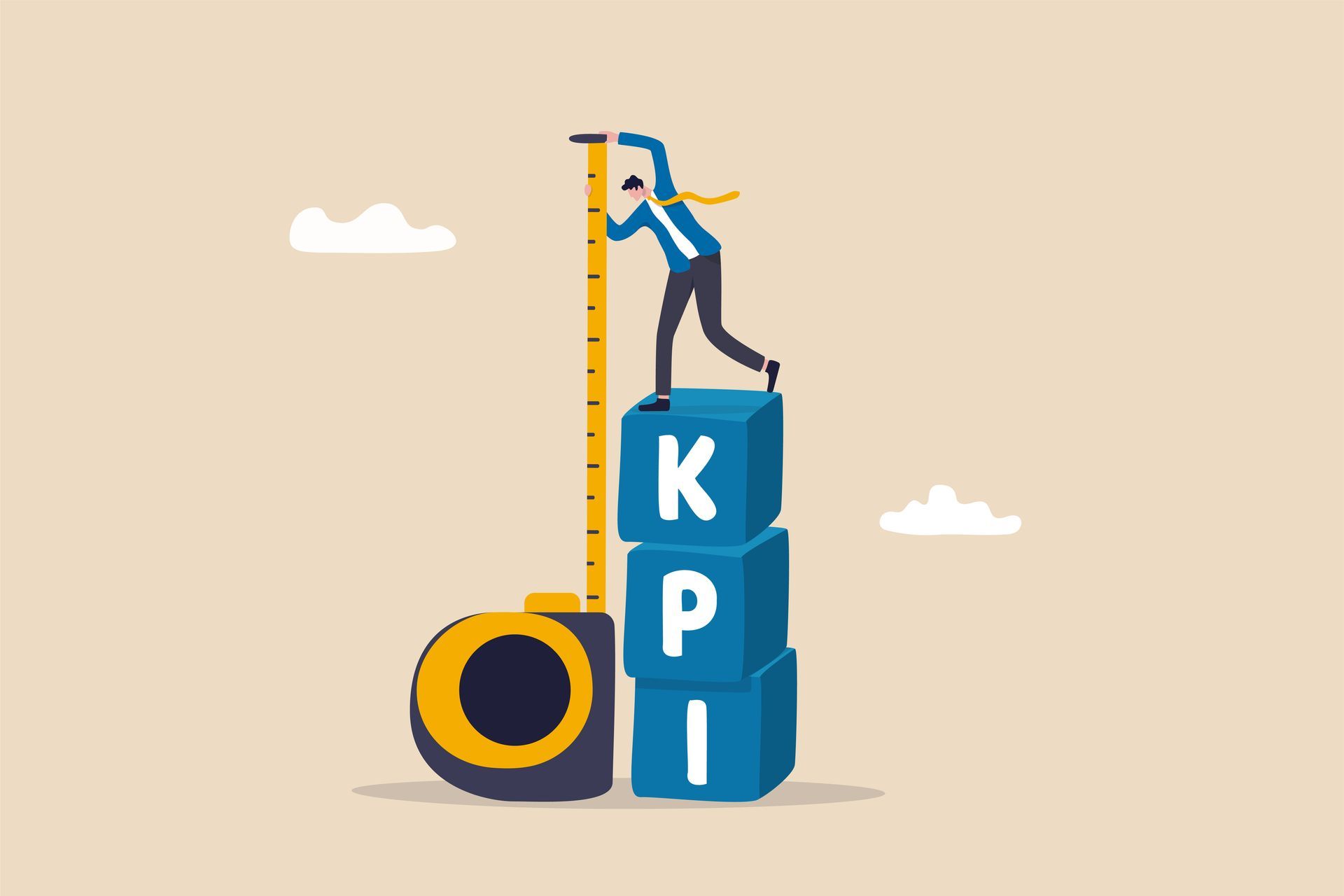5 Essential Marketing KPIs Every Business Should Track for Success
5 Essential Marketing KPIs Every Business Should Track for Success
In today's fast-paced digital landscape, tracking key performance indicators (KPIs) is essential for the success of any business. By monitoring specific metrics, businesses can gain valuable insights into their marketing efforts and make data-driven decisions to drive growth. In this article, we will explore five essential marketing KPIs that every business should track to achieve success.
Firstly, website traffic is a crucial metric to measure the effectiveness of your marketing campaigns. Monitoring the number of visitors to your site, as well as their behaviour and engagement, can help you understand which tactics are driving traffic and which need improvement.
Secondly, conversion rate is a critical KPI to track. It measures the percentage of website visitors who take the desired action, such as making a purchase or filling out a contact form. A higher conversion rate indicates that your marketing efforts are successfully driving leads or sales.
Next, customer acquisition cost (CAC) is a metric that calculates how much it costs to acquire a new customer. By identifying your CAC, you can determine the profitability of your marketing campaigns and adjust your strategies accordingly.
Furthermore, customer lifetime value (CLV) is an important KPI to understand the long-term value of a customer. It measures the revenue generated from a customer over their entire relationship with your business. By increasing CLV, you can maximise profitability.
Lastly, social media engagement is a crucial KPI for businesses in today's socially connected world. Tracking metrics such as likes, shares, and comments can help you gauge the effectiveness of your social media marketing efforts and drive engagement with your audience.
By consistently tracking these five essential marketing KPIs, businesses can gain valuable insights into their marketing performance and optimise their strategies for success.
Why tracking marketing KPIs is crucial for business success
Tracking marketing KPIs is crucial for business success because it provides a clear understanding of the effectiveness of marketing efforts. Without monitoring these key metrics, businesses would be operating blindly, not knowing which strategies are working and which need improvement. By tracking KPIs, businesses can make data-driven decisions, optimise their marketing campaigns, and allocate resources effectively.
Moreover, tracking marketing KPIs allows businesses to measure progress towards their goals. Whether it's increasing website traffic, improving conversion rates, or maximising customer lifetime value, having measurable metrics helps businesses stay focused and motivated. It also helps in identifying areas of improvement and making necessary adjustments to achieve desired results.
Key marketing KPIs every business should track
1. Tracking website traffic and conversion rates
Website traffic is a crucial metric to measure the effectiveness of marketing campaigns. By monitoring the number of visitors to your site, as well as their behaviour and engagement, you can understand which tactics are driving traffic and which need improvement. It is important to track not only the volume of traffic but also the quality of it. For example, tracking bounce rate, average time on site, and pages per session can help you understand how engaged visitors are with your content.
Conversion rate is another critical KPI to track. It measures the percentage of website visitors who take the desired action, such as making a purchase or filling out a contact form. A higher conversion rate indicates that your marketing efforts are successfully driving leads or sales. By analysing conversion rates, businesses can identify areas of improvement in their sales funnel and optimise their website and marketing campaigns to increase conversions.
2. Measuring brand awareness and customer engagement
Brand awareness is an important marketing KPI to track as it measures the visibility and recognition of your brand among your target audience. By monitoring metrics such as reach, impressions, and social mentions, businesses can gauge the effectiveness of their brand-building efforts. Increasing brand awareness can lead to higher customer trust, loyalty, and ultimately, more sales.
Customer engagement is another crucial KPI to measure. It refers to the interactions and interactions between customers and your brand. Tracking metrics such as likes, comments, shares, and click-through rates can help you understand how engaged your audience is with your content and marketing campaigns. By analysing customer engagement, businesses can identify what content resonates with their audience and tailor their marketing strategies accordingly.
3. Evaluating customer acquisition and retention
Customer acquisition cost (CAC) is a metric that calculates how much it costs to acquire a new customer. By identifying your CAC, you can determine the profitability of your marketing campaigns and adjust your strategies accordingly. Tracking CAC allows businesses to optimise their marketing spend and allocate resources to channels that yield the highest return on investment.
Customer lifetime value (CLV) is an important KPI to understand the long-term value of a customer. It measures the revenue generated from a customer over their entire relationship with your business. By increasing CLV, businesses can maximise profitability. Tracking CLV allows businesses to identify opportunities for upselling, cross-selling, and customer retention strategies.
4. Analysing marketing ROI and cost per acquisition
Return on investment (ROI) is a crucial metric to measure the overall effectiveness and profitability of your marketing efforts. It calculates the revenue generated from your marketing campaigns relative to the cost invested. By analysing ROI, businesses can identify which campaigns are delivering the highest return and allocate resources accordingly. Tracking ROI helps businesses optimise their marketing strategies and focus on activities that drive the most value.
Cost per acquisition (CPA) is a metric that measures the cost of acquiring a new customer or lead. By tracking CPA, businesses can evaluate the efficiency of their marketing campaigns and identify opportunities to reduce costs. Lowering CPA can lead to higher profitability and more efficient resource allocation.
5. Tracking social media engagement
Social media engagement is a crucial KPI for businesses in today's socially connected world. Tracking metrics such as likes, shares, comments, and click-through rates can help you gauge the effectiveness of your social media marketing efforts and drive engagement with your audience. By analysing social media engagement, businesses can identify what content resonates with their audience and optimise their social media strategies for maximum impact.

Conclusion and next steps
Tracking marketing KPIs is crucial for the success of any business. By consistently monitoring these essential metrics, businesses can gain valuable insights into their marketing performance and optimise their strategies for success. Whether it's tracking website traffic, conversion rates, brand awareness, customer acquisition, or social media engagement, these KPIs provide a comprehensive view of marketing effectiveness. To get started, define your goals, select relevant KPIs, and leverage the right tools and techniques to track and analyse data. By making data-driven decisions, businesses can drive growth and achieve long-term success. So, start tracking your marketing KPIs today and take your business to new heights.















